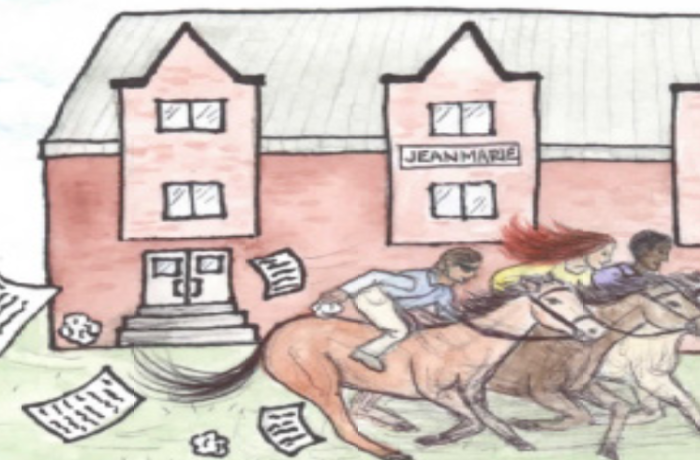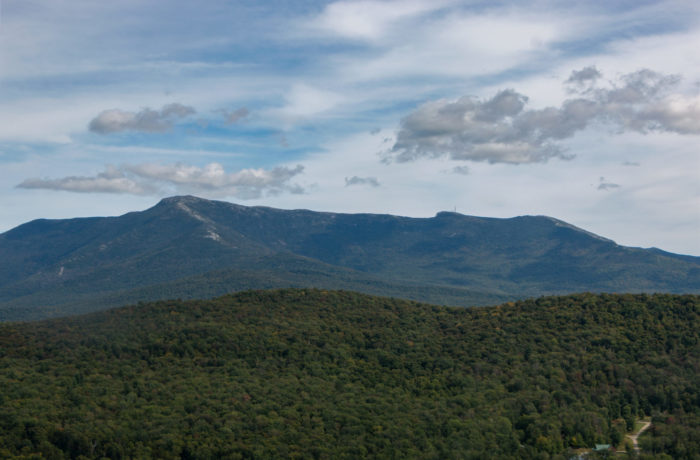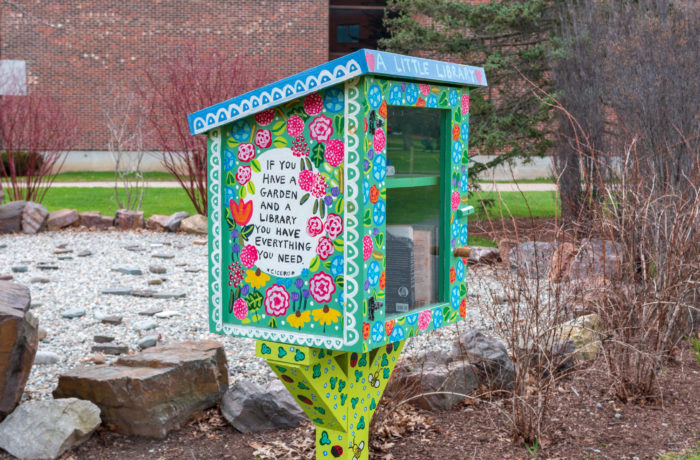When Graham Kaigle ‘18 first came to St. Michael’s College he had wild dreams of becoming an environmentalist. He’s the kind of person who takes note of how long you leave your car running outside of a building — he might ask you to turn it off. The earth means something to Kaigle, who grew up on a farm in Shelburne with views of the sun setting behind the Adirondack Mountains.

Graham and his older brother Drew, who studied physical medicine at the University of Vermont, put a large majority of their free time towards maintaining the orchard, but explain the weather can be an obstacle in a project like this.” Planting is just dependent on weather so that we don’t get our excavator stuck,” said Kaigle. The two brothers began planning their project earlier this fall and took action as soon as spring rolled around the corner. Graham is enrolled at St. Michael’s College working for his degree in environmental studies, a program which focuses on the humanities as well as the social and natural sciences revolving around our existent environment. He admits his education and background knowledge on the topic has helped him with expanding his family’s array of fresh produce.
“My parents and I bought around 50 trees for our first orchard and then some more trees to grow for our Christmas tree lot. Before we got any of that though we already had a small garden with raised beds for a variety of naturally produced veggies that we have grown for the past 16 years of living on the property,” Kaigle responded when asked about his environmental background. Although Kaigle is focused on his current project, of planting an orchard, he doesn’t hesitate to keep his eyes on the future,
“We have a conventional dairy farmer haying the field currently, but we are setting another five acres aside out there to be cover cropped and turned into an orchard eventually,” said the 21-year-old environmentalist from Shelburne.
Q: How do you spend a normal day on the farm?
A: Typically during the growing season is when we spend the most time tending to the garden. We have to weed daily, harvest every few days, and attend to any other farm tasks that may arise. Now that we have planted an orchard we will need to tend that almost weekly but day to day tasks typically vary in how much we have to do. Like this weekend we spent the past two days planting around 30 trees.
Q: What drove you towards starting your own orchard?
A: I am really passionate about agriculture and education so I wanted to look into starting my own farm. Since my parents have a fair portion of land I thought this would be a great way to start and would be a good leverage point for me to enter into agriculture and eventually agricultural education.
Q: Do you consider this work, or is this something you do as a passion?
A: When I work for Trillium Hill Farm in Hinesburg I somewhat consider it work because it’s not my farm but at the end of the day I absolutely would say it is my ultimate passion because I enjoy working.
Q: How has the environment in Vermont shaped you as an environmentalist?
A: Vermont is an incredibly unique place when it comes to local’s attachment to the environment. I find that living here having given me a really unique perspective and relationship with the environment because I am surrounded by a population that is rooted in the outdoors. I love this place and it has certainly had an impact on me as an environmentalist.
Q: Do you see this trend of sustainability and activism rising in America?
A: I think that agriculture and environmental activism are going to ramp up more than ever under the current presidential administration. People feel the need to stand up for what they believe in and that is a powerful trend. The environment is a powerful part of activism in general because we all utilize its resources in some way so why shouldn’t we be good stewards of this world? Aren’t we a part of it like every other living creature?
Q: What are your hopes for the future?
A: My hopes for the future are to have a highly successful and sustainable farm on this property that I hope to one day share with my family as it continues to grow. I hope to be an agricultural activist who lives and breathes the very message that I seek to preach.


